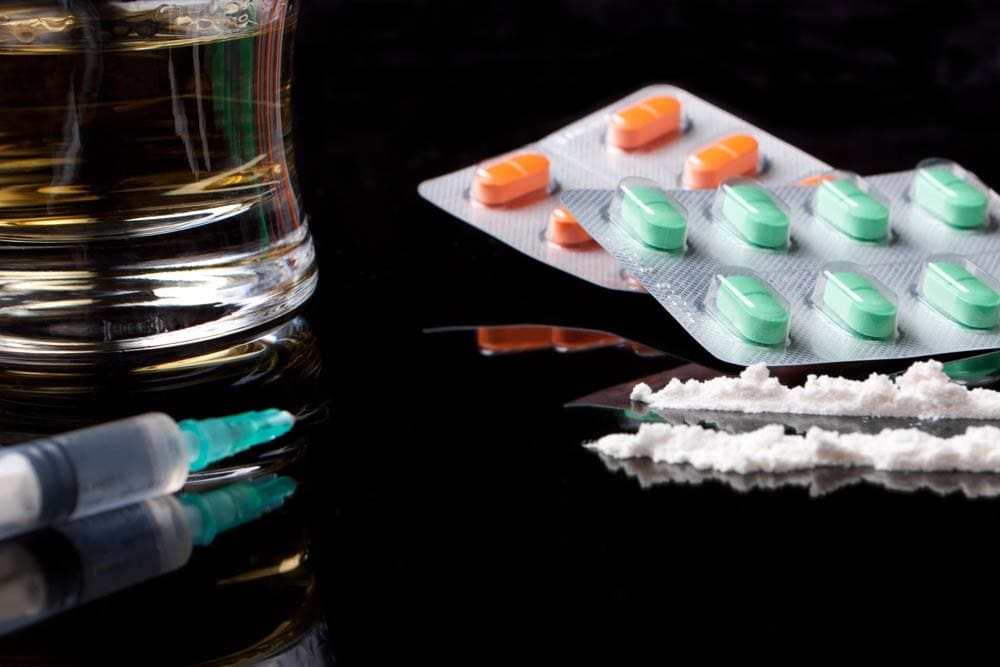Is Injecting Drugs More Addictive Than Snorting Drugs?
Snorting chemical substances will produce a high in minutes, and injecting chemical substances will produce a high almost instantaneously. Both methods are very dangerous and quickly lead to addiction.
When it comes to substance abuse, there are several different methods of administration. In most cases, the method of administration will depend on several factors, including the substance itself, the severity of the addiction, and the intentions of the drug user. The most common methods of drug administration are as follows:
- Injecting (intravenous use): this is by far the most dangerous method of drug administration. Those that use drugs intravenously are definitely in need of professional medical intervention. Chemical substances like crack cocaine and methamphetamine are sometimes melted down and injected, though the chemical substance most commonly injected today is heroin.
- Swallowing (oral use): when an individual swallows a drug, like a pill, it is ingested orally. It is absorbed into the bloodstream through the stomach lining and the intestines. Ingesting prescription drugs orally is extremely common. Those who ingest drugs will feel the effects in varying amounts of time based on how much they consume and how fast-acting the drug is.
- Snorting (nasal use): Sometimes, people crush prescription medications and administer them nasally – or snort them – if they want to feel the effects more quickly. One of the most commonly snorted drugs is cocaine, a white powdery substance. People who crush and snort drugs usually do so to produce a “high” more quickly.
- Smoking (oral use): smoking drugs is a faster way to get them to enter the bloodstream than oral or nasal ingestion. Those who smoke drugs will feel the effects very quickly. Some commonly smoked chemical substances include marijuana, crack cocaine, and methamphetamine.
Injecting vs. Snorting Drugs
Snorting chemical substances will produce a high in minutes, and injecting chemical substances will produce a high almost instantaneously. It can be difficult to determine which method of ingestion is the most addictive, as this will depend heavily on personal preference. This will also depend on the type of drug that is being ingested.
For example, the most commonly snorted chemical substance (as previously mentioned) is cocaine. Powdered cocaine has gained media notoriety and featured on the silver screen many times before this particular chemical substance is all but glamorized. While cocaine is highly addictive, a wide range of other chemical substances can be administered nasally that are more potent and instantaneously addictive. Some individuals will snort methamphetamine, heroin, and Rohypnol (or GHB, also known as “the date rape drug.”)
When injecting chemical substances, the most commonly abused intravenously is heroin. Heroin is highly addictive – by all qualifying standards, more addictive than cocaine. However, injecting a drug can be more psychologically addictive than administering it by any other means. In addition, many heroin users report a unique and addictive sensation when they use their drug of choice intravenously.
Of course, both methods of use are highly unsafe. A prescribing physician will never hand over a bottle of pills and say, “Snort two and call me in the morning.” Nor will a medical professional hand a patient a bottle of liquid morphine and a syringe and say, “Here. do it yourself.” Professional intervention will be mandatory if you or someone you love has been abusing chemical substances.
Absolute Awakening – Drug Addiction Help
At Absolute Awakenings, we treat men and women of all ages who have abused chemical substances through every imaginable method of ingestion. We understand that using drugs intravenously or snorting them is a serious issue, and our Admissions Counselors will work with you to get you or your loved one admitted to inpatient treatment as quickly as possible. For more information on our comprehensive drug addiction recovery program, call us today. We look forward to speaking with you soon.
References
- Jahan AR, Burgess DM. Substance Use Disorder. In: StatPearls. StatPearls Publishing; 2022. Accessed January 17, 2023. http://www.ncbi.nlm.nih.gov/books/NBK570642/
- Richards JR, Laurin EG. Cocaine. In: StatPearls. StatPearls Publishing; 2022. Accessed January 17, 2023. http://www.ncbi.nlm.nih.gov/books/NBK430769/
- Huecker MR, Koutsothanasis GA, Abbasy MSU, Marraffa J. Heroin. In: StatPearls. StatPearls Publishing; 2022. Accessed January 17, 2023. http://www.ncbi.nlm.nih.gov/books/NBK441876/
Absolute Awakenings Treatment Center Editoral Guideline
At Absolute Awakenings, we take information integrity seriously. We have dedicated our resources to ensure that all content published to our blog is medically sound. As such, all content on our blog has been thoroughly reviewed by a doctorate level clinician such as a Medical Doctor, or Psy.D, so that you can trust all of the data we publish.







